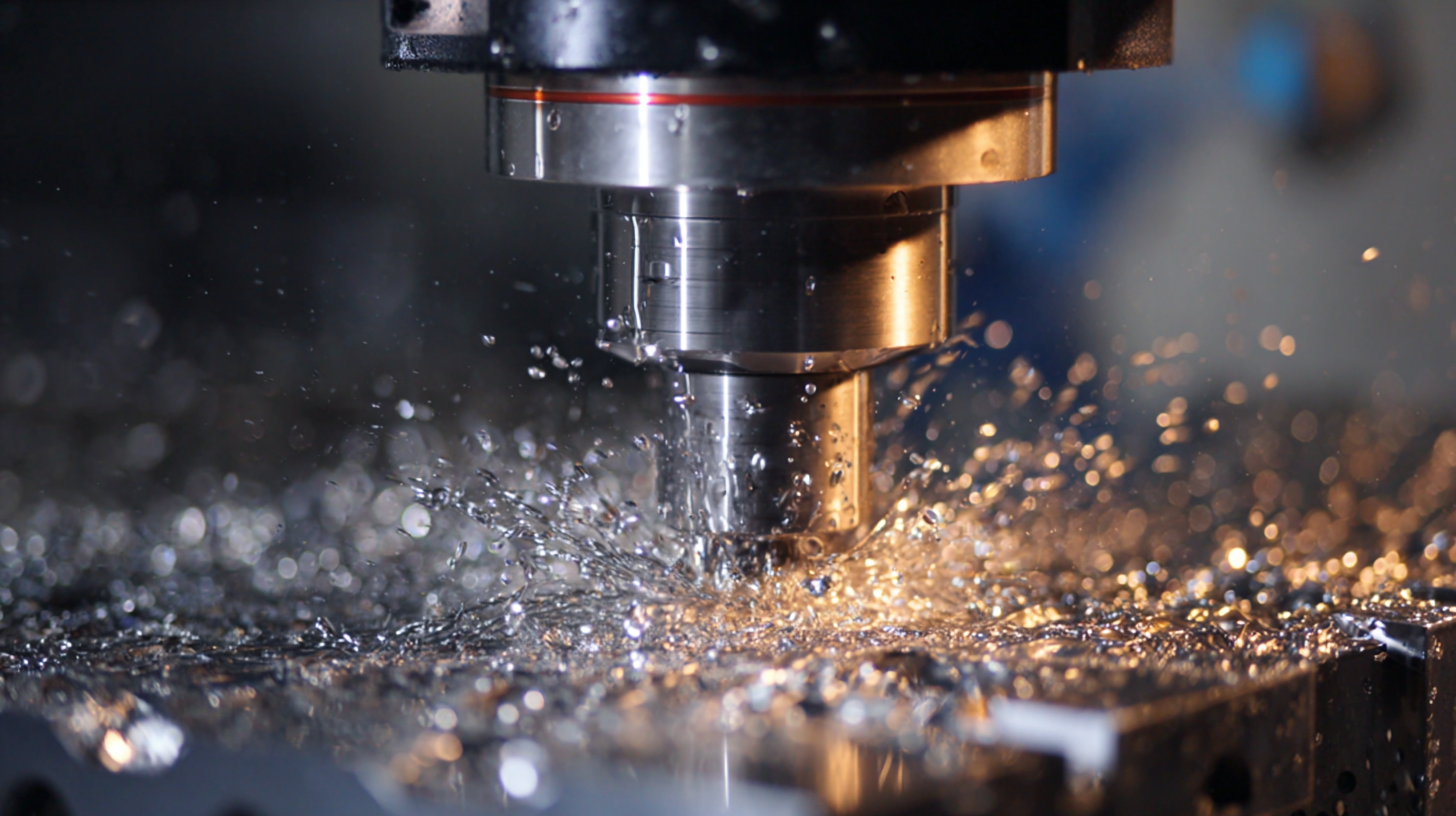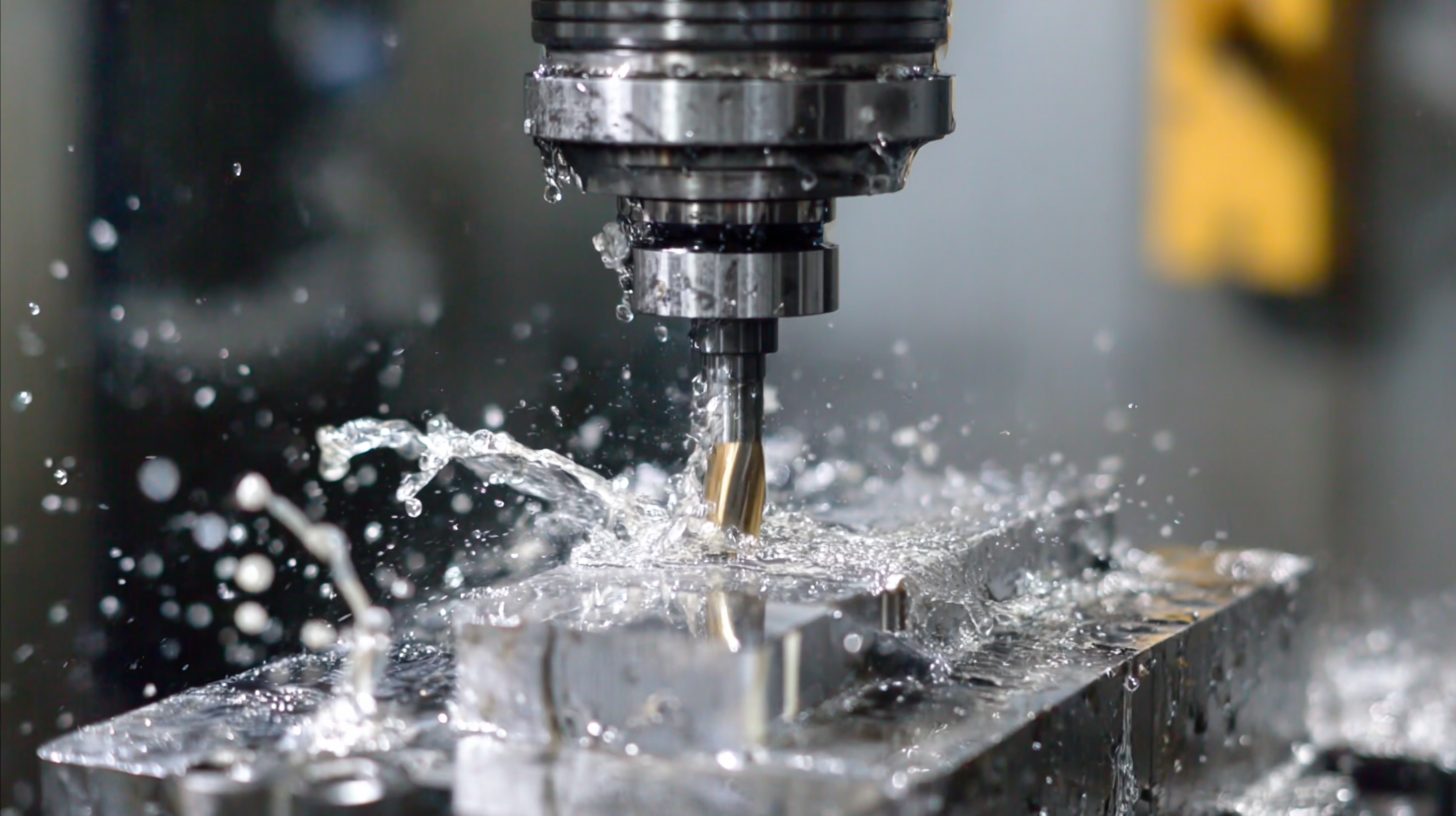5 Compelling Reasons Why Best Rapid CNC Machining Is Essential for Your Business Success
In today's fast-paced manufacturing landscape, businesses are increasingly relying on rapid CNC machining to maintain a competitive edge. According to a report by MarketsandMarkets, the global CNC machining market is projected to reach $100 billion by 2025, driven by the growing demand for precision and efficiency. Rapid CNC machining, which allows for quicker turnaround times and the ability to produce complex geometries, plays a pivotal role in this growth. By leveraging advanced technologies and automated processes, companies can significantly reduce lead times and costs, while enhancing product quality and customization capabilities. In an era where speed and accuracy are paramount, investing in the best rapid CNC machining services is not just beneficial, but essential for any business aiming for long-term success and innovation.

Industry Applications of Rapid CNC Machining Across Various Sectors
 Rapid CNC machining is revolutionizing various industry sectors by enhancing precision, speed, and flexibility in manufacturing processes. This technology plays a crucial role in applications across automotive, aerospace, and medical fields, where the demand for high-quality components is paramount. By leveraging advanced CNC machining techniques, businesses can efficiently produce intricate parts that meet stringent industry standards, thereby driving innovation and competitiveness in the market.
Rapid CNC machining is revolutionizing various industry sectors by enhancing precision, speed, and flexibility in manufacturing processes. This technology plays a crucial role in applications across automotive, aerospace, and medical fields, where the demand for high-quality components is paramount. By leveraging advanced CNC machining techniques, businesses can efficiently produce intricate parts that meet stringent industry standards, thereby driving innovation and competitiveness in the market.
Furthermore, the growth of the CNC machining market is tightly linked to the increasing demand for precision parts. As industries continue to evolve with modern manufacturing practices, the need for rapid and reliable production methods becomes essential. For instance, in the automotive sector, rapid CNC machining allows manufacturers to quickly create prototypes and tools, facilitating quicker design iterations and reducing time-to-market. This not only enhances production efficiency but also supports the broader trend of customization, where personalized components are increasingly sought after. The widespread adoption of rapid CNC machining is thus fundamental in helping businesses navigate the complexities of contemporary manufacturing challenges.
Types of Rapid CNC Machining: Understanding the Different Techniques and Technologies
The landscape of rapid CNC machining is continuously evolving with various techniques and technologies that cater to the diverse needs of industries. Understanding these types is crucial for businesses looking to leverage CNC machining for efficient production. One prominent method is subtractive machining, where material is systematically removed from a workpiece to create intricate designs and precise components. This technique is particularly vital in sectors like aerospace and medical manufacturing, where every detail counts and the margin for error is minimal.
Artificial intelligence is also revolutionizing the CNC machining industry. By integrating AI-driven solutions, companies can enhance precision, streamline operations, and significantly reduce costs. These advancements enable businesses to adopt more sophisticated machining techniques that utilize real-time data to optimize manufacturing processes. Furthermore, the rise of custom CNC machining services offers tailored solutions that meet specific client needs, marking a significant shift in how companies approach prototype manufacturing and production.
As the global CNC machine market continues to grow, staying abreast of these developments will be essential for competitive business success.
The Role of Rapid CNC Machining in Enhancing Product Development and Innovation
Rapid CNC machining has emerged as a pivotal component in modern product development, significantly boosting innovation across various industries. By utilizing advanced CNC technology, businesses can produce intricate prototypes and parts with remarkable speed and precision. This agility allows companies to test ideas quickly, iterate designs effectively, and bring products to market faster than ever before. As a result, enterprises can stay ahead of competitors by responding swiftly to market changes and customer demands.
Moreover, rapid CNC machining enhances collaboration between design and engineering teams. The ability to create functional prototypes in a fraction of the time facilitates meaningful feedback loops, enabling teams to refine their concepts based on real-world testing. This collaborative environment fosters creativity and encourages experimentation, leading to innovative solutions that may not have been possible with traditional manufacturing methods. As companies continue to prioritize innovation, investing in rapid CNC machining becomes an essential strategy for maintaining a competitive edge and ensuring long-term success.
5 Compelling Reasons Why Best Rapid CNC Machining Is Essential for Your Business Success
This bar chart illustrates the importance of rapid CNC machining across five vital dimensions affecting business success: Speed, Cost Efficiency, Flexibility, Quality, and Innovation. Each factor is scored based on its positive impact, showcasing the critical role that rapid CNC machining plays in enhancing product development and fostering innovation.
Cost-Effectiveness of Rapid CNC Machining for Small and Medium Enterprises
Rapid CNC machining is transforming the landscape for small and medium enterprises (SMEs) by providing cost-effective manufacturing solutions. Using advanced computer numerical control technology, businesses can produce complex parts with high precision while minimizing waste. This level of efficiency not only reduces material costs but also cuts down on time, enabling SMEs to respond quickly to market demands and enhance their competitive edge.

One of the standout advantages of rapid CNC machining is the ability to create prototypes and production runs in shorter time frames without compromising quality. For SMEs, this means having the opportunity to test designs and iterate on products with less financial risk. By investing in rapid CNC machining, small businesses can streamline their production processes, allowing for lower overhead costs and greater resource allocation towards innovation and growth. This approach not only helps in maintaining a healthier bottom line but also positions SMEs to adapt swiftly to ever-changing consumer preferences.
How Rapid CNC Machining Ensures Quality and Precision in Manufacturing Processes
Rapid CNC machining is a game-changer in manufacturing processes, ensuring exceptional quality and precision that are crucial for business success. As industries advance, the demand for rapid prototyping and quick turnaround times has grown exponentially. By utilizing cutting-edge technology and sophisticated software, rapid CNC machining can produce intricate designs with remarkable accuracy. This capability not only reduces production time but also minimizes material waste, making it an eco-friendly choice in a market that increasingly values sustainability.
The integration of artificial intelligence into next-gen CNC machining is further revolutionizing precision manufacturing. AI enhances the machining process by predicting failures, optimizing tool paths, and automating adjustments. As a result, businesses can achieve higher efficiency and quality control, leading to consistently superior products. This advancement not only bolsters a company’s competitiveness but also builds trust in their manufacturing processes, ultimately driving long-term success in a dynamic marketplace. Emphasizing the importance of quality and precision through rapid CNC machining positions businesses to meet evolving customer demands while establishing themselves as leaders in their respective industries.